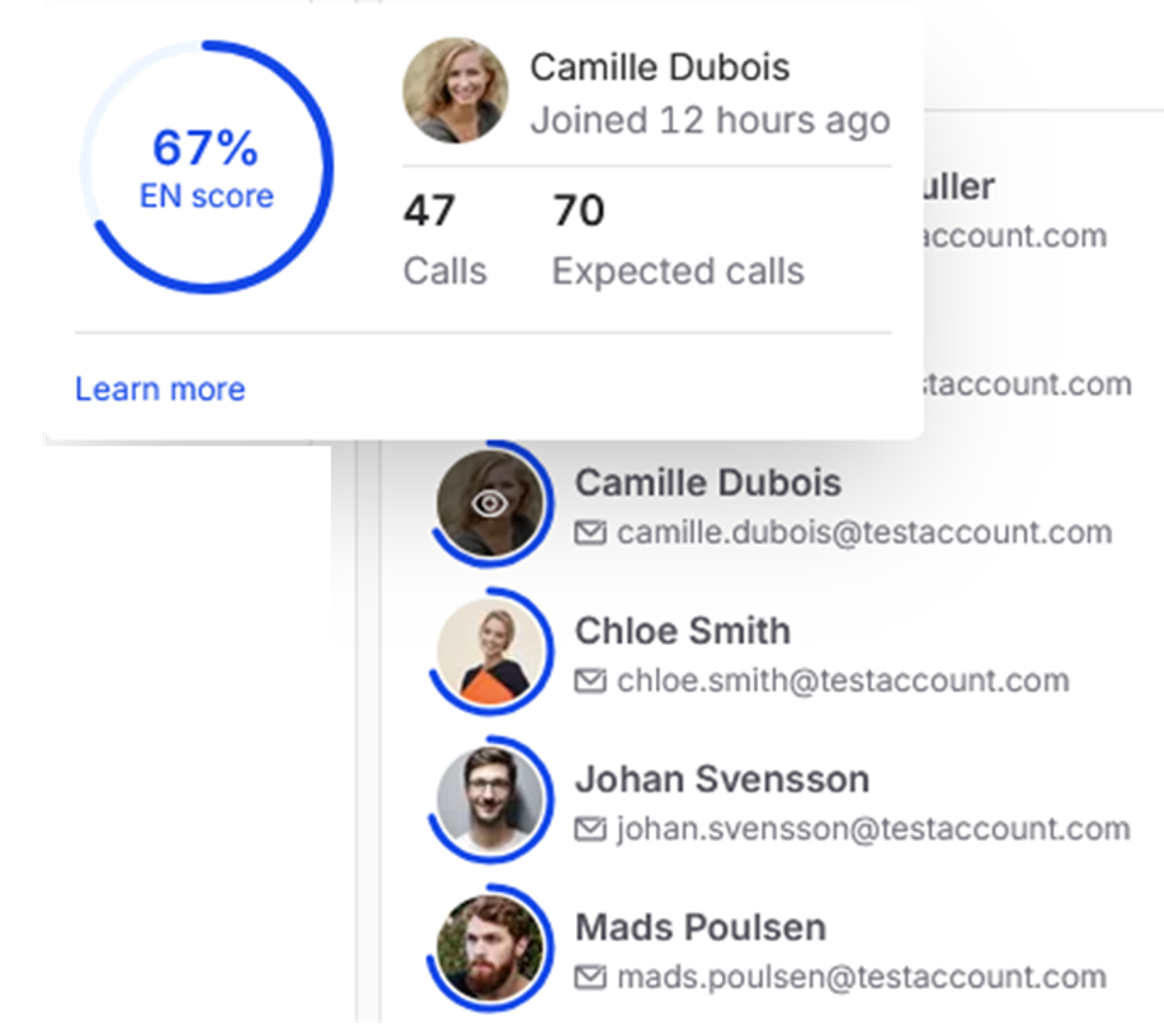10 Nov 2025
How to use Expert Networks best: The EN Score

The EN Score helps you get optimal service from your expert networks. It aligns incentives between clients and their expert network partners. The result is better service and lower costs for all.
The EN Score is a sort of nudge, helping clients to act in a way that gives them the best outcome. Mathematically, the EN Score is the rolling average of the number of calls that you do, over calls you say will do.
A high EN score shows the expert networks that you're a great client, that they’ll make money prioritizing your projects. This makes them go the extra mile for you, giving you great experts fast.
How to get optimal service from expert networks
Trust is built with consistency. As a client, you benefit from being consistent and doing projects over time. Expert networks see this:

In the past year, Camille has asked for 70 calls and completed 47. Anything above 30% is considered good; anything above 60% is great. Camille’s EN Score is 67% - she can expect to get priority service from the expert networks.
The Lemon problem and the Nudge
The EN Score creates transparency and efficiency, by creating a repeat game. Conversely, when I was at McKinsey, I played a short-term game. I’d blast emails to 4-5 expert networks (ENs) to see who they could all find. I optimized for service now. Like peeing your pants, it's sub-optimal in the medium term. You wreck your reputation and create extra work for expert networks, which drives up costs for all parties.
Because here's the other side of the equation: an expert network associate supports 6-10 projects in parallel. That means an associate has about 1 working hour per project and day.
But projects are different. Some projects you get day 1, and you’re the only network. On others, you’re invited late to pick up the scraps. Problem is you don’t know which project is which.
You’ll end up guessing, and allocating your time randomly. You’ll work on some projects that won’t yield, as the client already took their calls last week with another network. In other projects, you’ll leave the client disappointed, wondering where the experts are.
Nobel laureate George Akerlof called this a lemon problem: when you don’t know which clients are “good ones”, you’ll have to treat all clients as “OK”. This is suboptimal for all parties.

Solving for optimal Expert Network service
The EN Score removes the guesswork. EN associates clearly identify “the lemons” from the good clients and serve them accordingly.
Clients take notice, too. We find they give realistic expectations and communicate better with the ENs than over email. They realize it’s a repeat game. This result is less wasted efforts on both sides, less spam to experts, and better service quality to the client.
Curious to see what users say? Read the reviews here.
Want to try it for yourself? Sign up here, or book a demo.